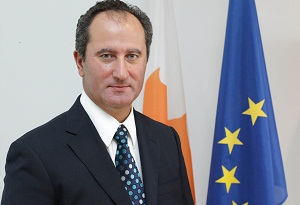By Salah Bugazia and Sharon Lynch
Benghazi/Tripoli, April 22:
Between 15 and 19 April, 455 candidates filed applications to run for seats on . . .[restrict]the Benghazi Local Council; 22 of them are women.
To put this in perspective, 22 female candidates in Benghazi is five times greater than Misrata where there were four female candidates out of a total of 245. In Misrata, the four female candidates represented 1.6 percent of the 245 candidates; the 22 female candidates in Benghazi represent 4.8 percent of 455. Benghazi has less than twice the number of candidates overall than Misrata, but five times as many women have filed to run for office. How many of these women Benghazi will elect to its 41-seat Local Council remains to be seen.
The nomination window closed on 19 April, the names of the 455 candidates are due to be announced today, Sunday, when the process of candidate certification will begin. The names should be listed on the Benghazi election website: http://www.lecbly.com.
All 455 candidates will be vetted by the High Election Committee to ascertain that each is at least 25 years old and is “clean,” meaning that s/he is not and has not been associated with the Qaddafi regime. Each candidate is also required to ask twenty people, of at least 25 years of age, who are not close relatives, to personally endorse him or her before the High Election Committee, swear on the Quran and sign an oath.
Given the large number of candidates, it may take several days before the final list of candidates approved by the High Election Committee is published and actual campaigning for office begins. In Misrata, the number was reduced from 245 to 216. We should know next week how many of the 455 Benghazi candidates will actually be running. At that time the ten-day period allotted for campaigning will begin.
In the meantime, voter registration will continue through Thursday, 26 April. Speaking with Salah Bugazia late in the day on Saturday, Suleiman Zubi, chairman of the Benghazi High Election Committee, indicated that they expect to register an additional 20,000 -30,000 voters per day over the next five days. He anticipates a large response when the list of candidates is announced. As of Thursday, 19 April, 140,000 people had been registered to vote in Benghazi.
Participation in the Benghazi voter registration process has said to have been marked by apathy. It has been suggested that people did not have enough information and did not understand the process well enough. Others have found the process simple and fast, taking only five minutes to present proof of residency and age (18 and over). Ahmed Sanalla, who proudly tweeted a photo of himself with his voter registration certificate last week, remarked yesterday about how “democracy & elections are a new thing to Libya”. He observed how “public awareness regarding elections is very poor, although improving all the time in Benghazi, and voter registration [had] increased dramatically over the last few days”.
Others believe that things have not changed much and this election is not very different from the past. Amr Omran Farkash, also a Benghazi resident, spoke more specifically, sharing that many of the Benghazi activists were displeased with the NTC’s rejection of candidates that Misrata Local Council elected to replace the self-appointed NTC members remaining from the war. They pointedly question: “Why bother with elections if they are not going to have any impact?”
Speaking a week ago, Farkash expressed his disappointment that the activists were not planning to run in the local election, stating that “they are not looking for political roles, they are just doing [activism] for the sake of the city and Libya”. He intended to continue to try to convince them, and with 455 candidates, he may very well have succeeded.
However, the NTC will be under considerably more pressure when Benghazi sends its eleven elected council members to replace those currently representing the city. Combined with the four representatives from Misrata, there will be fifteen democratically elected representatives to serve on the NTC. Given the suspicion and resentment towards the NTC for its lack of transparency and refusal for months to reveal the identity of its members, it is certain to be cause for consternation if it continues to refuse to accept openly identifiable representatives the people have elected to represent their interests.
Benghazi activists have also resented the NTC’s reduction of the boundaries of Benghazi to the towns of Sidi Khalifa, Benina and Terria and no more. Osama Swedik, a member of the Libyan Youth of Benghazi, a group of activists who played an integral role in the Al-Shajara protests, is concerned that by reducing Benghazi’s geographic area, the NTC is also reducing the amount of money allocated to the city while at the same time the areas eliminated do not have basic facilities, such as hospitals and universities, and will need to use Benghazi’s. Farkash believes that the NTC decision was illegal and should not have been passed without a referendum.
When asked his opinion, Zubi did not think the change of Benghazi’s boundaries would negatively impact Benghazi’s election. He acknowledged that people in the towns were angry that they had been eliminated from the local election, but that he is executing the NTC’s orders and, unfortunately, there is not much his committee can do about the decision.
Zubi also noted that he was visited on Saturday by a team from the United Nations who responded positively to the progress made on the election and the work of his committee. He did not give a specific date, but expects the voting in Benghazi to take place during the first week of May. [/restrict]








